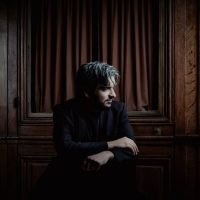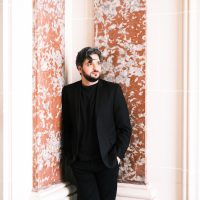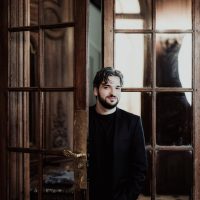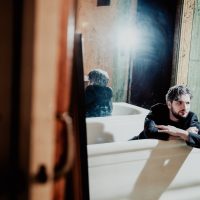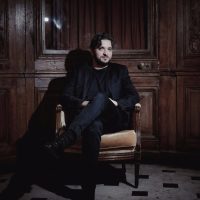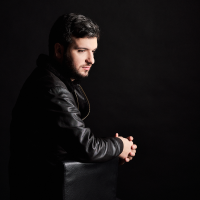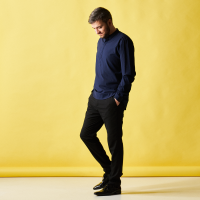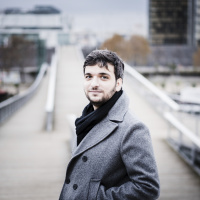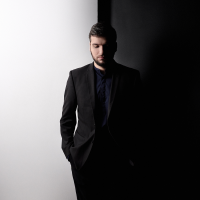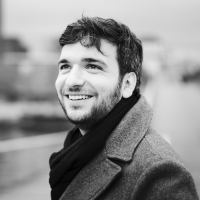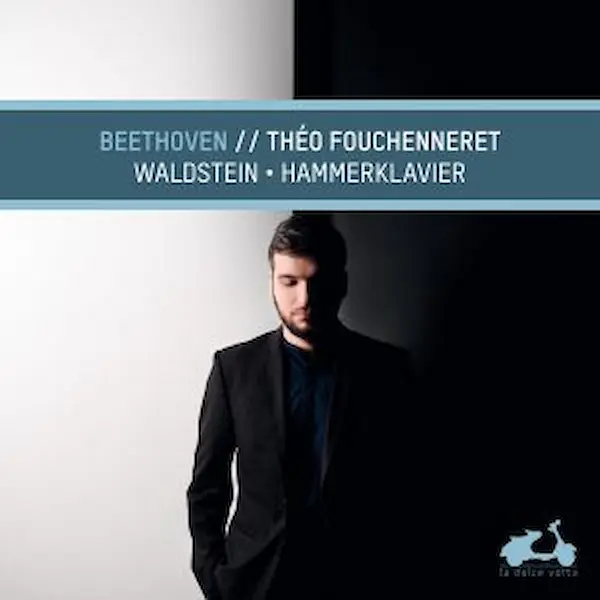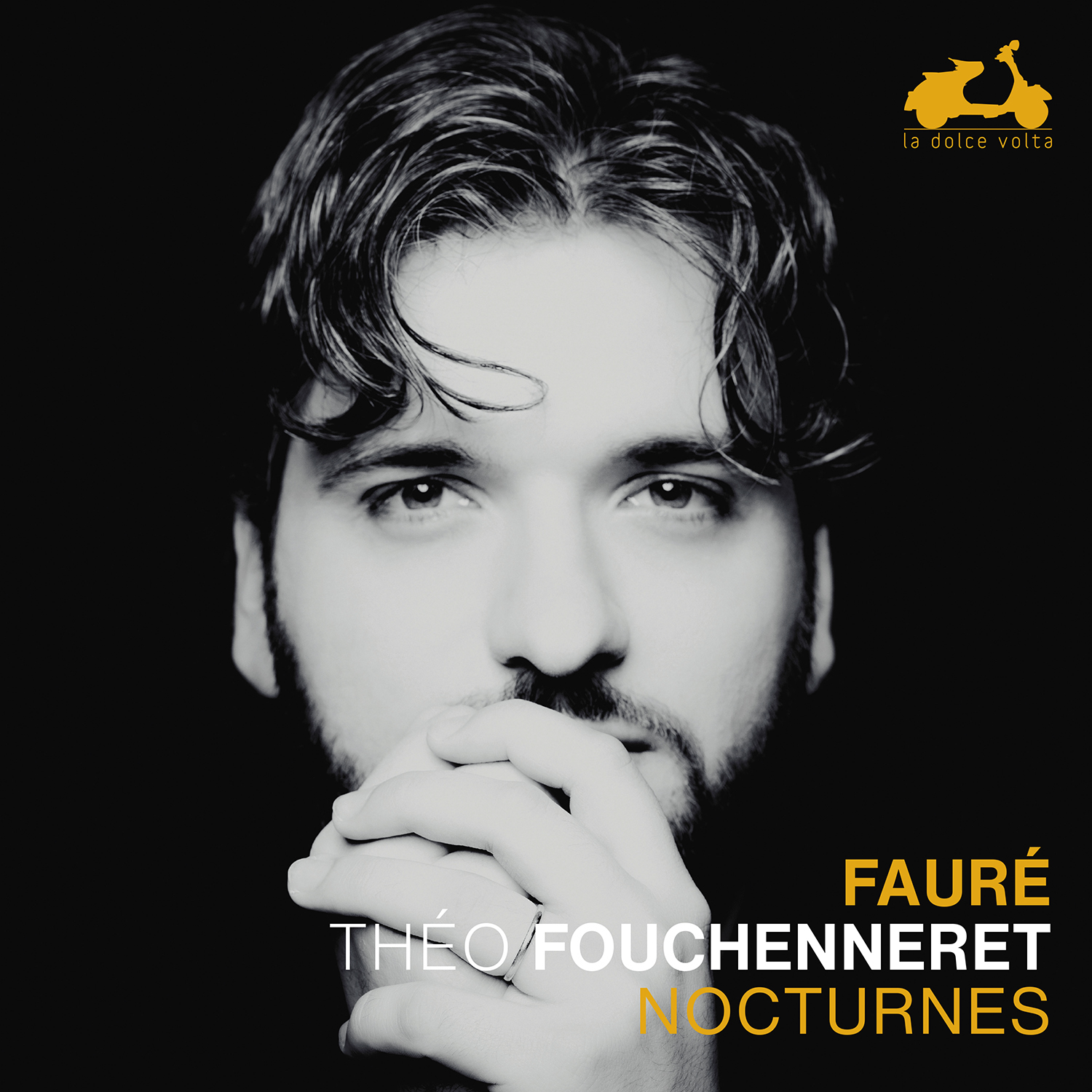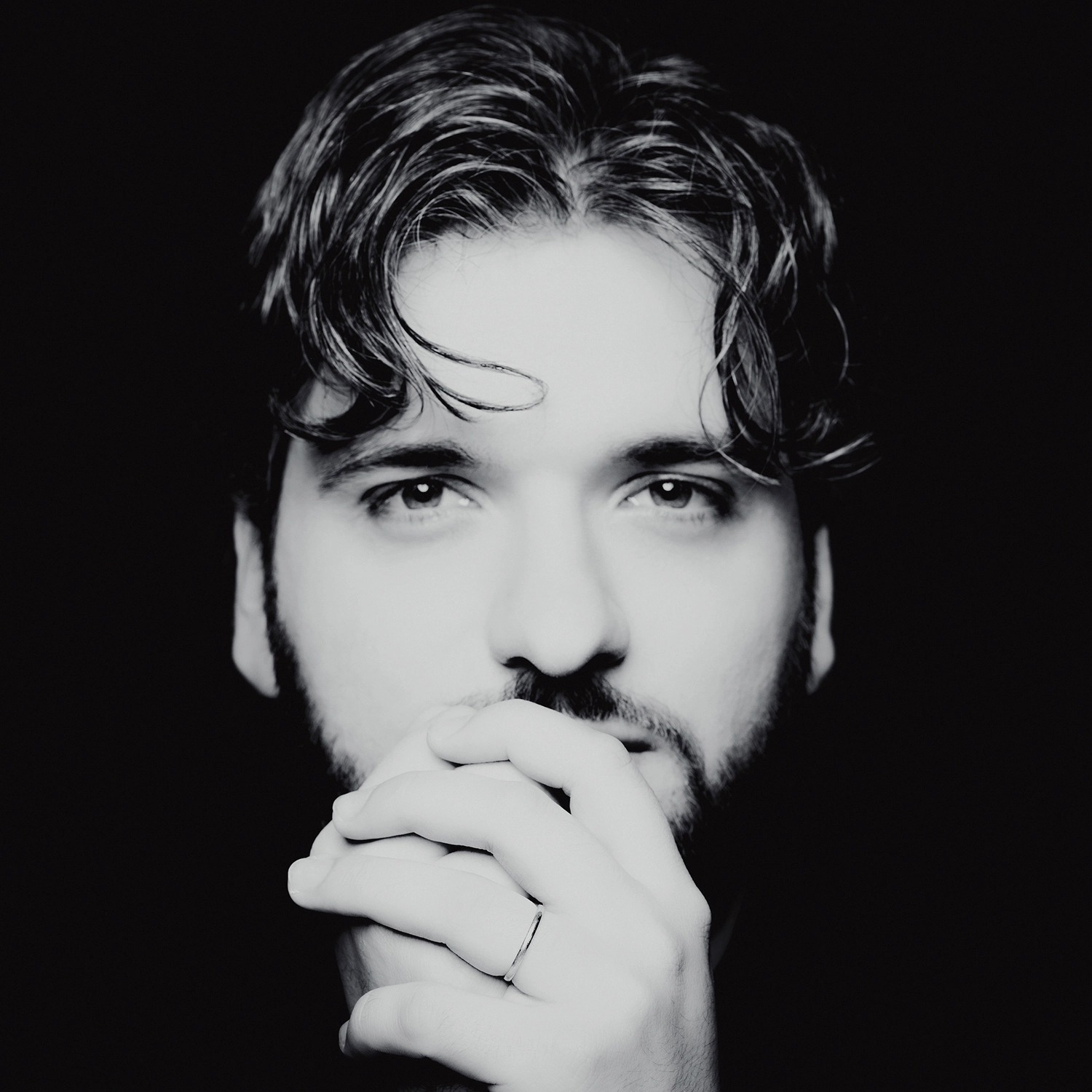
Théo Fouchenneret
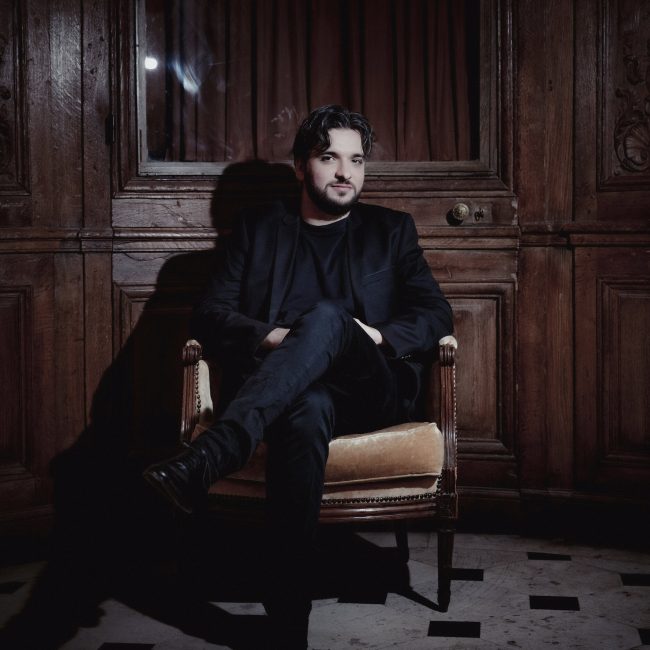
Théo Fouchenneret
Music is Théo Fouchenneret’s language, the means of communication that comes spontaneously to him when he wants to talk about himself or about life. Indeed, his brother Pierre says he is a bird. This born musician can sometimes be silent when the mood takes him, forsaking his piano for a while. Not that his mind is then occupied by any material contingency, any thought: it is the music that haunts him, continues to live inside him, ready to burst forth as soon as he returns to the keyboard, when it has blossomed, nourished by the good things in life.
Very early in life, he forged a close rapport with his violinist brother Pierre, nine years his senior: the two children were agreed on introducing classical music into the family circle, which vibrated to the rhythms of rock and jazz. Théo started out on the violin too, but, admiring his brother’s talent, he soon set his sights on just one goal: to perform with Pierre. And what better way of achieving this than to learn the piano? The very first duets they played together gave birth to his passion for the music of Fauré. A few years later, he won First Prize at the Gabriel Fauré International Competition in Pamiers.
He has held his course, right from his early lessons at the Nice Conservatoire with Christine Gastaud. This demanding and passionate teacher armed him with solid principles that he still bears in mind today: cherish each note, leave one note only reluctantly for the next, tell stories, keep the flame alive . . . A year with Hortense Cartier-Bresson opened the doors of the Conservatoire National Supérieur de Musique et de Danse de Paris, from which he graduated when still very young. Then he went straight to the heart of the matter. There was no point in collecting competition wins. Two would suffice, and were duly selected: the Lyon International Chamber Music Competition and, the same year, the Geneva Competition. Two First Prizes and five Special Prizes for chamber music: Théo could now devote himself to other things.
After pocketing an award at the Victoires de la Musique Classique the following year, he was already giving more and more recitals, and a project was born: a first CD for La Dolce Volta of Beethoven’s ‘Waldstein’ and ‘Hammerklavier’ Sonatas. Although he felt these musical monuments should not wait until one was great in years, he knows that sometimes you do have to give music time to mature. His thirst for repertoire must be tempered by his insistence that his work should always reach the highest standards. Then Fauré’s Nocturnes, in their turn, reached the recording studio after a long incubation period. And now Théo looks to the future: Mendelssohn, and Schubert a little later . . . One day, perhaps, he will record Bach, whose organ works he admires: going back in time to reach the source of the music he plays today and, following in the footsteps of Murray Perahia and András Schiff, to find clarity of discourse and sound, purity of emotion in the tranquil expressivity of counterpoint.
Ever since his early experiences at home, chamber music, with its promise of enriching encounters and multiple projects, has occupied a constant place in his artistic existence From Beethoven to Stravinsky, from duos to quintets, he has so much music in his repertoire! It is to Robert Schumann that he has chosen to devote his first survey of a composer’s chamber music, launched with a recording of the complete works for violin and piano alongside his brother. Béla Bartók also figures in his pantheon: Hortense Cartier- Bresson passed on to him her fascination for this music, the variety of its emotions, the strength of its architecture. In concert, the Sonata for Two Pianos and Percussion is always an exhilarating adventure. How about recording it? ‘A dream! But you have to be patient with this work.’ For Théo Fouchenneret, some works should be laid down, like the best vintage wines.

